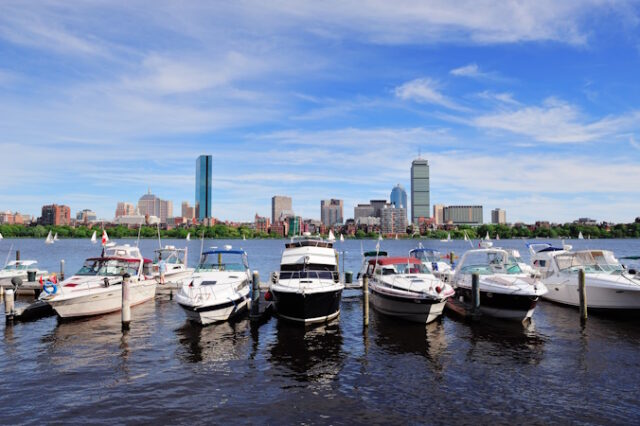
Boating is an enjoyable activity that allows individuals to connect with nature, enjoy water sports, and even experience a sense of freedom. However, like any recreational activity, boating comes with its own set of risks.
Among these, boat crashes are a common concern. Unfortunately, there are numerous myths surrounding boat crashes that can lead to confusion and misinformation. As a boater, it is crucial to separate fact from fiction to ensure safety on the water.
In this article, we will debunk the top 5 boat crash myths, providing you with valuable insights into what every boater should know. Whether you’re an experienced sailor or a first-time boat owner, understanding the truths behind these myths can help you stay safe and confident on the water.
Myth 1: Boat Crashes Only Happen to Inexperienced Boaters
One of the most common misconceptions is that only inexperienced boaters are involved in accidents. While it may seem intuitive that novice boaters are more prone to mistakes, the reality is far more complex. In fact, a significant percentage of accidente de navegación involve experienced operators.
The U.S. Coast Guard reports that nearly 70% of boating accidents occur on vessels operated by individuals with more than 100 hours of experience. Even experienced boaters can make errors, especially when weather conditions change suddenly or when navigating unfamiliar waters. It’s essential to remember that accidents can happen to anyone, regardless of their boating experience.
Key factors that contribute to boat crashes, regardless of experience, include:
- Distracted boating
- Alcohol consumption
- Overconfidence
- Weather conditions
- Mechanical failures
It’s crucial to stay vigilant and adhere to safety guidelines, regardless of your experience level.
Myth 2: Alcohol Is the Primary Cause of Boat Crashes
Alcohol consumption is often cited as the leading cause of boat crashes, and while it’s a factor in some accidents, it’s not the main cause of boat crashes overall. Many boaters mistakenly believe that alcohol is the primary culprit behind accidents. While alcohol certainly impairs judgment and reaction times, leading to dangerous situations, the truth is that there are other factors that contribute to accidents.
For instance, human error, poor weather conditions, and mechanical malfunctions often play a larger role in crashes. Distracted boating is another critical issue; it’s easy to become distracted by conversations, electronic devices, or navigating busy waterways. All of these factors contribute to accidents that are not directly related to alcohol consumption.
Factors more commonly associated with boat crashes than alcohol include:
- Collisions with other vessels or stationary objects
- Running aground
- Capsizing due to improper handling of the boat
- Inadequate safety equipment on board
It’s important to stay sober and focus on the task at hand, but don’t overlook other risks when operating a boat.
Myth 3: Small Boats Are More Dangerous Than Large Boats
Another widespread myth is that small boats are more dangerous than larger ones. Many boaters assume that the bigger the boat, the safer it will be in a crash. However, the size of the boat doesn’t necessarily equate to safety, and in some cases, small boats can be just as safe as larger vessels when used properly.
Small boats, like kayaks, canoes, and fishing boats, do present different risks compared to large yachts or powerboats. They are more susceptible to capsizing and swamping in rough waters, but this is often due to how they are used rather than their inherent danger. A well-maintained small boat operated by a skilled boater is much safer than a large boat that’s poorly maintained or improperly operated.
Things to consider when boating, regardless of boat size:
- Weather conditions
- Speed limits and regulations
- Boating experience and skills
- Safety equipment (life jackets, flares, etc.)
- Boat maintenance and condition
A small boat may be more vulnerable in certain conditions, but it can be just as safe as a larger vessel when appropriate precautions are taken.
Myth 4: Boat Crashes Are Always Caused by Speeding
It’s often believed that speeding is the primary cause of boat crashes. While excessive speed can certainly contribute to accidents, it’s not always the main factor. In fact, many accidents occur at low speeds or when boats are at a standstill. In these cases, the problem may lie in poor navigation, misjudgment of distances, or failure to notice other boats or obstacles.
Boaters often mistakenly believe that if they stay under the speed limit, they’re completely safe from accidents. However, the risk of a crash is not solely determined by speed. Factors like weather conditions, visibility, and navigation skills play a much larger role in ensuring safety on the water. In some situations, it’s not the speed of the boat, but the failure to react in time to changing conditions or unforeseen hazards that causes accidents.
Key factors in preventing boat crashes:
- Staying alert and focused
- Properly adjusting speed based on water conditions
- Navigating according to waterway rules and regulations
- Understanding and reading the water conditions
- Keeping a safe distance from other vessels
Speeding may increase the likelihood of an accident, but other contributing factors must also be taken into account.
Myth 5: Boat Crashes Only Happen at Night or in Bad Weather
Many boaters believe that crashes only occur during poor weather conditions or at night when visibility is low. While adverse weather conditions do increase the likelihood of accidents, most crashes occur during the daytime in good weather conditions. In fact, about 70% of all boat crashes occur in clear weather, with plenty of daylight.
What many boaters fail to realize is that boat crashes can happen under seemingly perfect conditions due to factors like distraction, fatigue, or inexperience. For instance, collisions often happen in busy marinas or crowded waterways during peak boating hours. It’s easy to get distracted or misjudge the proximity of other boats, leading to a crash. Weather conditions and time of day are certainly factors that increase risk, but they aren’t the sole determinants of whether an accident will occur.
Safety tips to prevent accidents, regardless of weather or time of day:
- Always maintain a safe speed
- Keep a lookout for other boats and potential hazards
- Ensure your boat is properly equipped with safety gear
- Avoid distractions such as phone use while operating the boat
- Be aware of other boats’ movement patterns in busy areas
Boat crashes can happen at any time, in any weather, and during the day or night. Awareness, caution, and preparation are key to reducing the risks associated with boating.
Understanding the facts about boat crashes is essential for every boater. By debunking these common myths, we hope you now have a clearer idea of the true causes of accidents on the water.
Remember, accidents can happen to anyone, regardless of experience or boat size. By staying educated and cautious, you can reduce the risk and make your time on the water as safe as possible. Keep these truths in mind, and always prioritize safety when operating a boat.
Disclaimer
The information contained in South Florida Reporter is for general information purposes only.
The South Florida Reporter assumes no responsibility for errors or omissions in the contents of the Service.
In no event shall the South Florida Reporter be liable for any special, direct, indirect, consequential, or incidental damages or any damages whatsoever, whether in an action of contract, negligence or other tort, arising out of or in connection with the use of the Service or the contents of the Service. The Company reserves the right to make additions, deletions, or modifications to the contents of the Service at any time without prior notice.
The Company does not warrant that the Service is free of viruses or other harmful components












